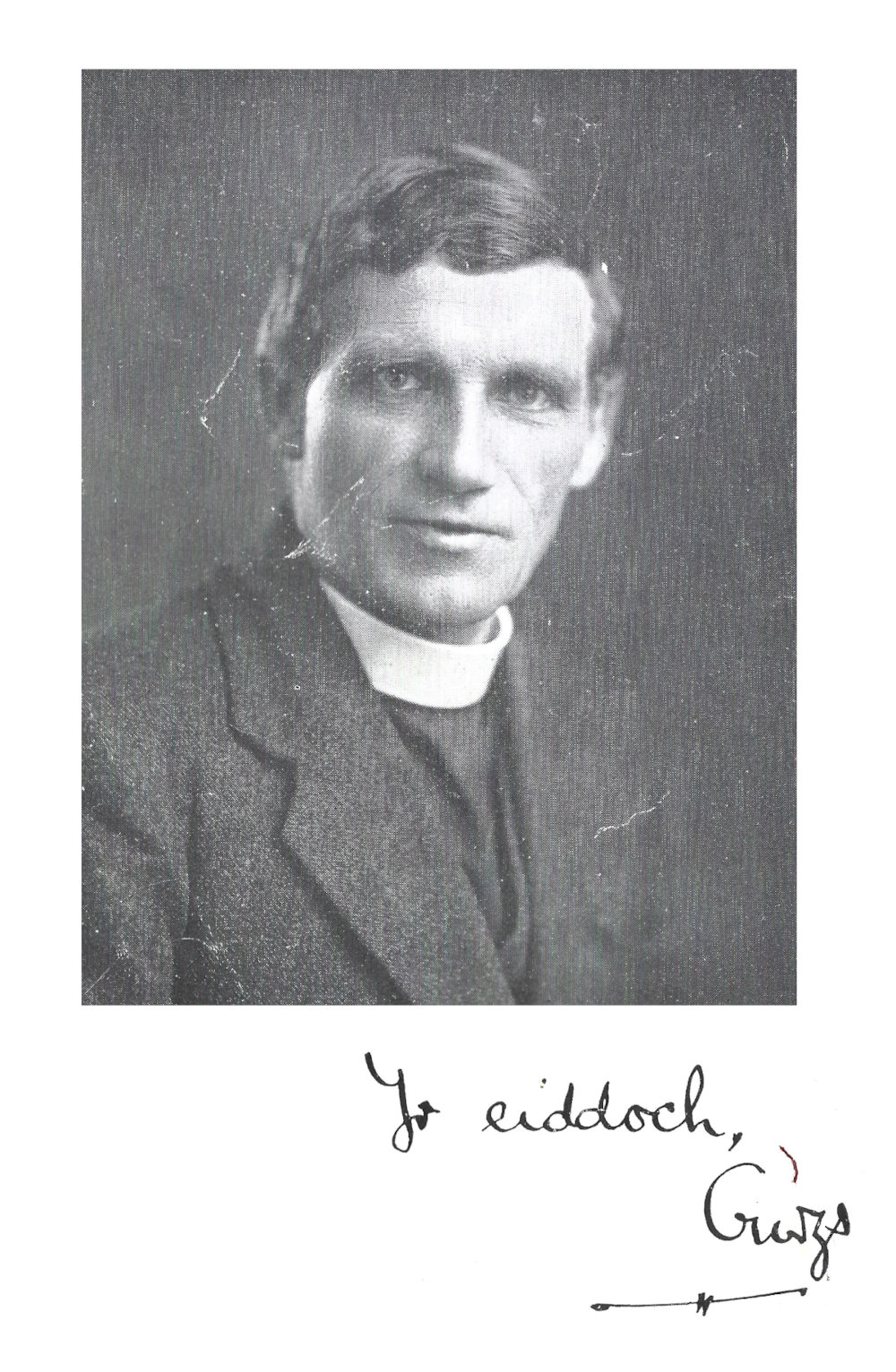Archdderwydd Gorsedd Beirdd Ynys Prydain o 1938 hyd 1947 oedd y Parchedig William Crwys Williams. Bu’n weithgar iawn fel gweinidog ac ym myd llenyddiaeth gan ennill y gadair tair gwaith gyda’r testunau Ednyfed Fychan (1910), Gwerin Cymru (1911), a Morgan Llwyd o Wynedd (1919). Cyhoeddodd ambell i gyfrol o’i gerddi yn y Gymraeg. Un o’i gyhoeddiadau Saesneg yn 1927, oedd hanes Eglwys Annibynwyr Rehoboth, Brynmawr, Sir Frycheiniog. Bu’n weinidog yno o 1898 hyd 1914. Dyma un o’i atgofion:
Another early impression I had was, that the church adhered to the old customs of days gone by. It still had its cottage prayer meetings, and even held a gwylnos on the night preceding the funeral. Some of the older deacons even asked me whether I belonged to the old or the new “Constitution” – an echo of the quarrel which nearly rent Congregationalism in twain over a question of denominational rule and policy. Here, then, I found a church worshipping in the old language, believing in the old customs, and remembering the ways of long ago. It was an old church in a new world, so I felt. Our problem was a very obvious one except to such as would not see at all – how to adapt ourselves to the new and changing surroundings.
With the help of some who are still pillars of the church, and by methods not too drastic, time helping too, the difficulties were faced one by one and successfully overcome. The most difficult problem of all, perhaps, was the language, and it was with much trepidation and concern for the peace of the church that we faced it. The older people naturally opposed any change, but the younger folk were in favour. With less opposition than was feared at first, it was decided to convert the evening service into an English one in 1901. Very warily indeed did we move, exercising all the patience at our command, and eventually triumphing. It was more than inspiring to see the heroic effort made by those whose souls had been nourished through the Welsh language, to enjoy the Gospel in what was to them almost a foreign tongue, and to believe that the vessel alone had been changed and that the wine was still the same. Gradually the “Rhodd Mam” and the Welsh Hymnal and the Welsh Bible were set aside, and their place allotted to their English rivals in the same category. Still, it was all to the good, and as the months and the years sped on, the change became more than justified. A wider and more intense interest was evinced, the wandering ones came home again, the congregation grew, and the appeal of the church to its surroundings became stronger and more effective than it had been for a long time.
Mynychodd rhai o’m teidiau/neiniau’r eglwys hwn. Diflannodd y Gymraeg o ambell i genhedlaeth ar un ochr o fy nghoeden deulu, cyn ail-ymddangos gydag edifeirwch. Er ei gyfraniadau i’r Gymraeg, mae’n ymddangos mai o dan ei arweinyddiaeth ef y bu disodliad y Gymraeg o’r capel hwn.
Mwy am hanes William Crwys Williams ar Y Bywgraffiad Cymreig, gan Llyfrgell Genedlaethol Cymru: https://bywgraffiadur.cymru/article/c4-WILL-WIL-1875

Roedd Crwys o Graig Cefn Parc ac mae ei fedd yn mynwent Pant y Crwys, lle mae nifer o fy nghyndeidiau yn gorffwys hefyd. Roedd mamgu yn byw ar y fferm deulol yng Nghraig Cefn Parc tua 1952 ac roedd Crwys yn galw draw weithiau, pan oedd fy nhad yn blentyn bach, Roedd mamgu yn mynnu bod fy nhad yn adrodd penillion iddo (rhywbeth nad oedd fy nhad yn hoffi gwneud).
Ond ie roedd e o’r genhedlaeth hynny lle mai saesneg oedd iaith ‘gwelliant’ addysgol a chymdeithasol. Wnaeth e ddim trosglwyddo’r iaith i’w blant. Nôl yn ei bentref enedigol fe wnaeth y gymdeithas leol a’r capel yno sicrhau bod fy mherthnasau yno wedi cadw’r Cymraeg.